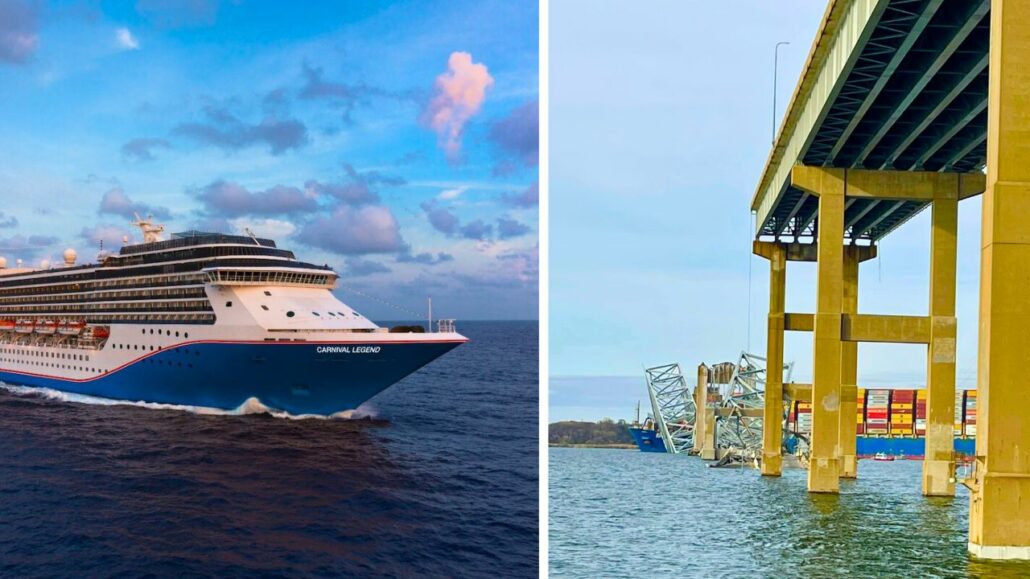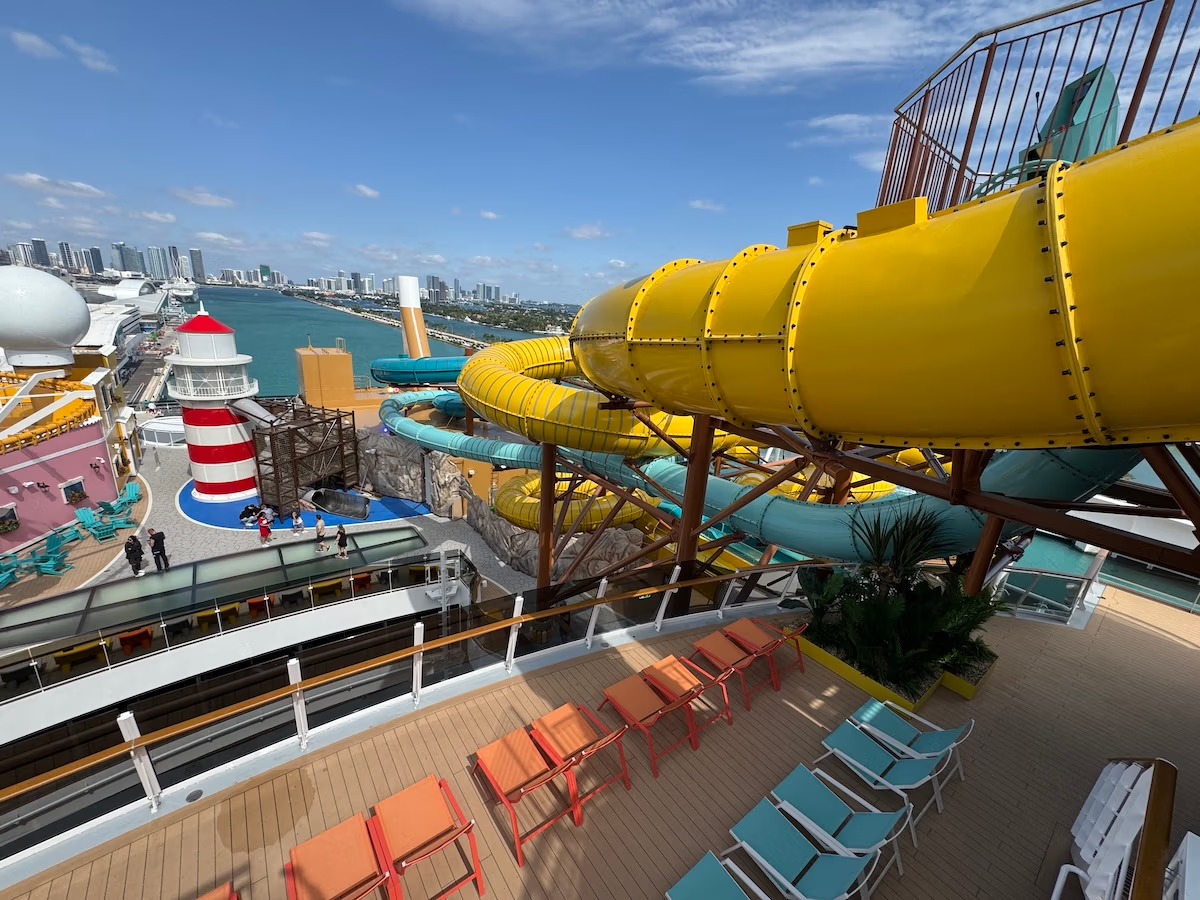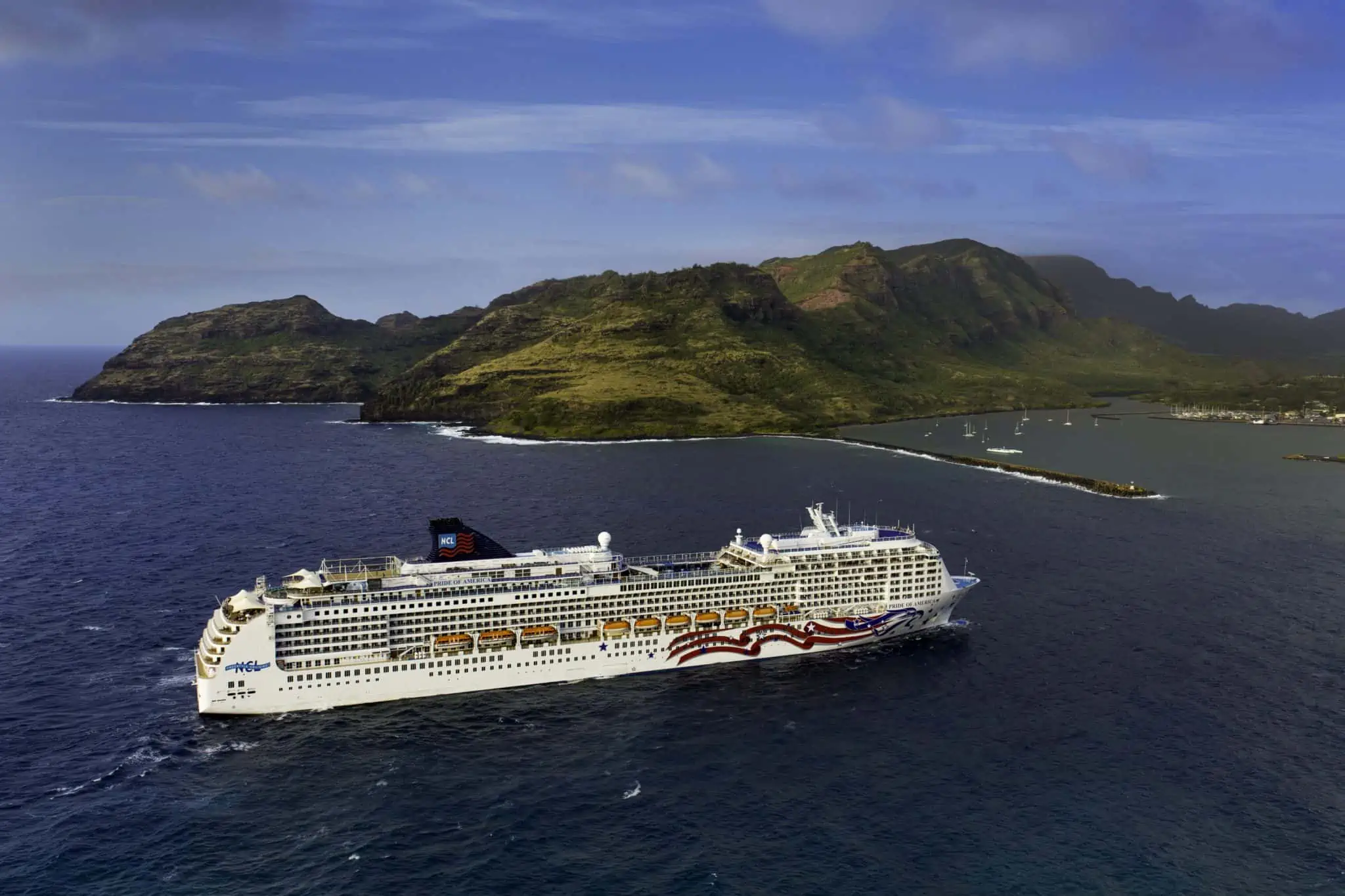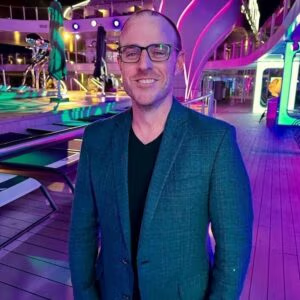With the channel outside Baltimore indefinitely closed due to the collapse of the Francis Scott Key bridge, Royal Caribbean has temporarily arranged for Vision of the Seas to operate out of the port in Norfolk, Virginia.

A letter to booked guests says, “Due to the recent developments in Baltimore, the port is no longer safe to embark our guests for the sailing on April 4. Unfortunately, this means that our itinerary has been revised.”
The communication said, “We will now embark at the port of Norfolk, Virginia. Please know that the safety and comfort of our guests are always our highest priority.” After the cruise, the ship will also return to the Virginia port instead of the originally planned Baltimore.

A similar letter was sent to guests booked on the Vision of the Seas sailing scheduled to depart on Friday, April 12. As a result of this change, there will also be another change to that sailing.
The cruise line informed guests, “we will need to shorten our cruise by one day and return to Norfolk on April 19th instead of April 20th, 2024.”
Furthermore, that sailing will result in skipping a planned visit to Nassau. The revised itinerary can be seen below.

Given the situation that unfolded in the aftermath of the tragic collision, which demolished the bridge, crippled the harbor, and claimed several lives, this move is not surprising.
Royal Caribbean is following in the footsteps of Carnival Cruise Line, which also moved their Baltimore-based operations to Norfolk.

This meant that guests at sea aboard the Carnival Legend when the collapse occurred had to be bussed back to Baltimore — at Carnival’s expense — to retrieve their vehicles.
No official word has been on when the harbor will return to maritime traffic. Currently, cranes are beginning to remove bridge pieces to open the channel.
Meanwhile, the impact of the harbor’s closing stretches far beyond the Baltimore area. Several cargo ships are currently in the harbor and unable to leave.
In addition, because Baltimore is a central shipping hub, the effect on the already-suffering supply chain is leading to what Maryland’s governor has called “a national economic catastrophe.”





